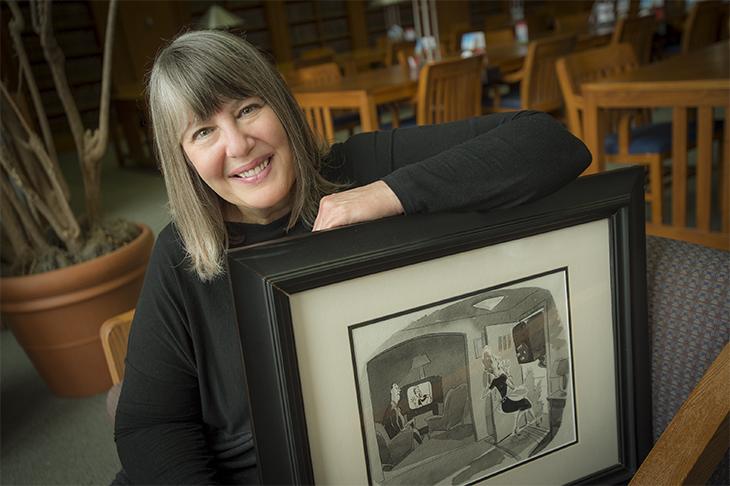Law school’s Amy Gajda informs Gawker privacy debate
It wasn’t just the salaciousness of Hulk Hogan’s sex tape that had eyes from coast to coast watching for the outcome of the Gawker trial in Florida — it was a broader free speech-versus-privacy issue.
That conflict, the heart of the former pro wrestler’s lawsuit over Gawker’s online publishing of the video, is precisely what Tulane Law School professor Amy Gajda explores in her 2015 book The First Amendment Bubble: How Privacy and Paparazzi Threaten a Free Press.
She’s warned that boundary-pushing new media have caused courts to push back with more limits that threaten free expression. And her perspective has helped inform a national conversation about when privacy might trump press decisions about newsworthiness: She’s been quoted recently in The New York Times, The Guardian, Los Angeles Times, Slate, Wired and Salon, on “CBS This Morning,” and by other news outlets.
“My sense is that we need a line to protect privacy over others’ concept of news.”
Amy Gajda
Regarding the Gawker trial, Gajda wrote an opinion piece for The New York Times, noting that courts routinely have given publishers wide latitude to set the standard for newsworthiness. But, she wrote, “Today, when publishers decide that we’d like to see Hulk Hogan engaging in sexual activity, or that we want to watch Erin Andrews nude in her hotel room, that broad definition of newsworthiness endangers privacy.”
In fact, a jury concluded in March that Gawker should pay Hogan, whose real name is Terry Bollea, $115 million in compensation and $25 million in punitive damages for invading his privacy. Gajda wrote in The New York Daily News that she believes legal precedent supports the verdict, though it could get overturned on appeal.
“My sense is that we need a line to protect privacy over others’ concept of news,” she wrote. “Sex tapes and nudity seem like fine places to start because who knows what publishing tomorrow brings.”
Gajda’s real-world approach to contemporary privacy issues also has made her popular among her students. She’s taken classes to the set of a reality-TV series to talk with producers and has invited public figures to speak with students about their experiences with privacy in the glare of publicity.
Linda P. Campbell is Tulane Law School’s director of communications.

